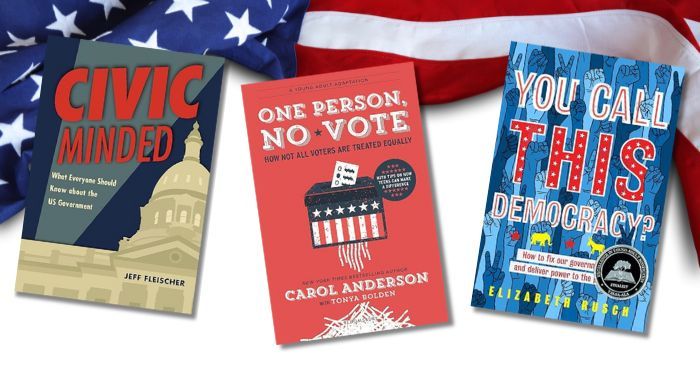This content contains affiliate links. When you buy through these links, we may earn an affiliate commission.
Civic education is essential, but formal civics classes in US schools are surprisingly rare. A study from 2018—the most recent I could find—shows that there are 11 states that require no civics classes in high school, while 30 only require half of a year. The part of the study that stands out is that the requirements for civics instruction, which the study notes is often integrated into other courses, relies heavily on knowledge and not application.
Despite this, we know that teens are actively engaged in civics all the time. They are among the leaders in movements from anti-censorship to environmental activism. It is very likely that while in the six years between the above-linked study and now that actual civics education has not changed drastically, teen access to cell phones and engaged activist communities online and in person has given them far more opportunity to be part of civics application.
YA books about civics continue to be published, and in light of all the opportunities for young people (and those of us less-young people!) to be active, engaged, and knowledgeable. This list comes with a caveat: there is a big hole in this segment of YA nonfiction for more work by people of color. The relationship people have with civics and civic engagement differs, especially for marginalized folks, and the majority of the books out there now are by white authors. There is so much room and need for more voices here.
Let’s take a look at a few must-read YA nonfiction books about American government and civics.
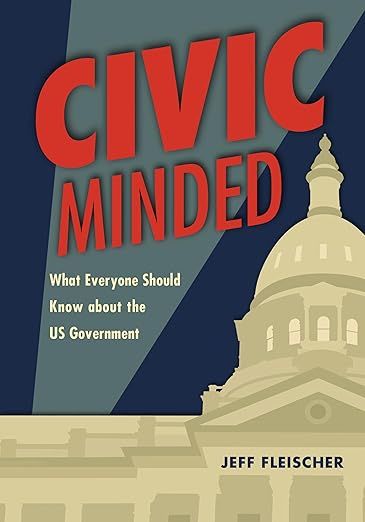

Civic Minded: What Everyone Should Know about the US Government by Jeff Fleischer (October 1)
How do different government processes work? Where and how did they originate and where or how might they be changed or altered? Those are just some of the topics explored in this engaging and inviting guide to the history, present, and future of American civics.
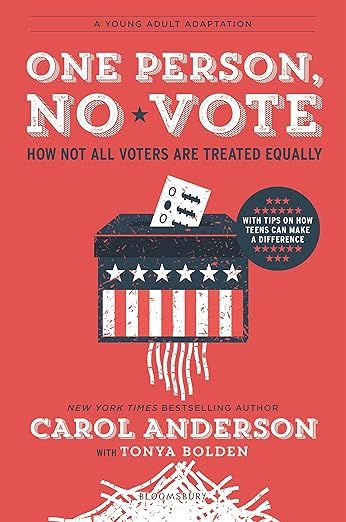

One Person, No Vote (YA Edition): How Not All Voters Are Treated Equally by Carol Anderson with Tonya Bolden
The young adult adaptation of Anderson’s book explores the modern-day practices of voter suppression. It released prior to the 2020 election as a way to empower and inform young people that the tactics to suppress votes wasn’t historic—it’s contemporary and ongoing. This message is, unfortunately, more urgent and relevant than ever in 2024.
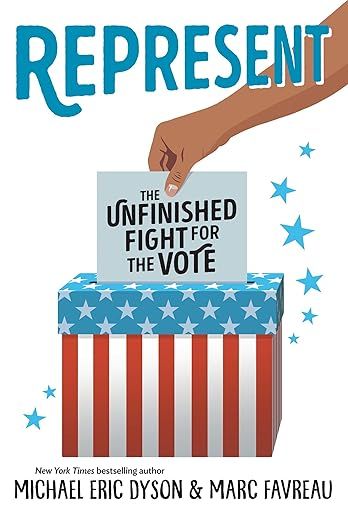

Represent: The Unfinished Fight for the Vote by Michael Eric Dyson and Marc Favreau (September 10)
Speaking of voting rights, the latest book by the team of Dyson and Favreau explores the history of voting rights in America from its founding until today. Within the book are stories from a wide array of people who fought to establish voting rights for all, including a Lakota Sioux Activist, a Mexican American student, Black World War II Veterans, and more. This sounds like a fantastic book to pair with the just-released Shift Happens by J. Albert Mann, as well as the previous Dyson/Favreau YA nonfiction collaboration, Unequal: A Story of America.
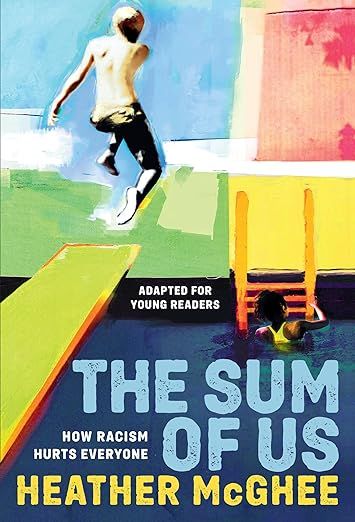

The Sum of Us (Adapted for Young Readers): How Racism Hurts Everyone by Heather McGhee
Not 100% about the democratic process or civics, McGhee’s book is a must-read for anyone who wants to fight for true democracy. It’s a book about the realities of American racial and economic disparity and is a call for taking action to create a more inclusive, equitable country. Racism does not just impact marginalized people. It directly impacts white people, too.
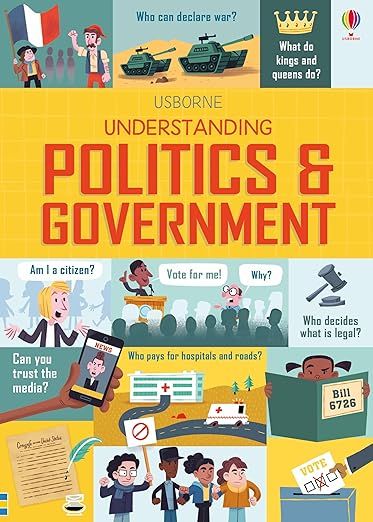

Understanding Politics and Government by Rosie Hore, Alex Frith, Louie Stowell, and Kellan Stover
This work of graphic nonfiction offers insight and explanation for politics and government (as the title so perfectly suggests) but does it in a way that is extremely approachable, engaging, and accessible. The book highlights how everything is political, the various systems of government that exist, propaganda and fake news, and more. It’s vast but the format makes it one that is easy to browse. This book is aimed at a bit of a younger YA audience, but it will likely appeal to even older YA readers.
Check out a sample spread:
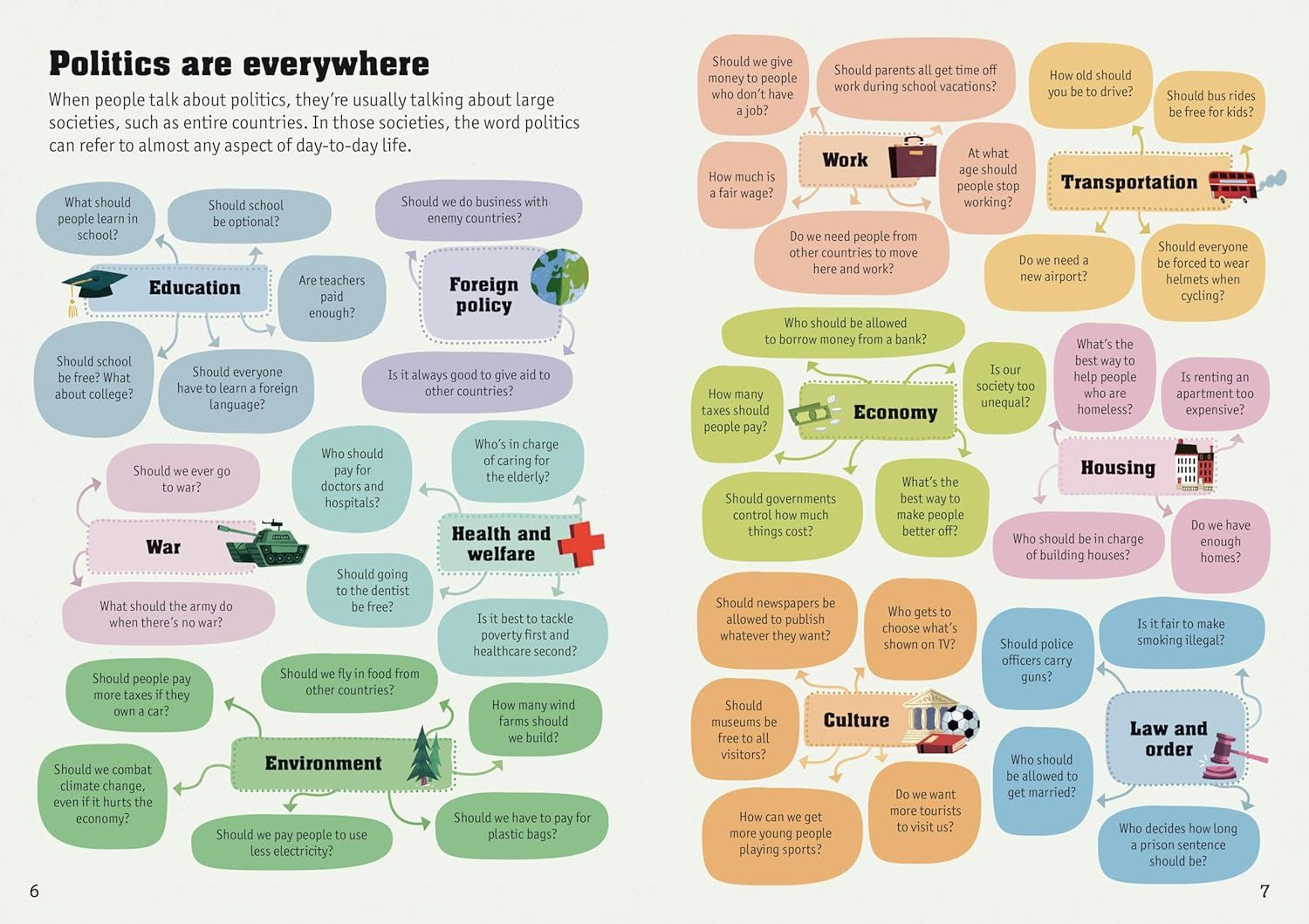

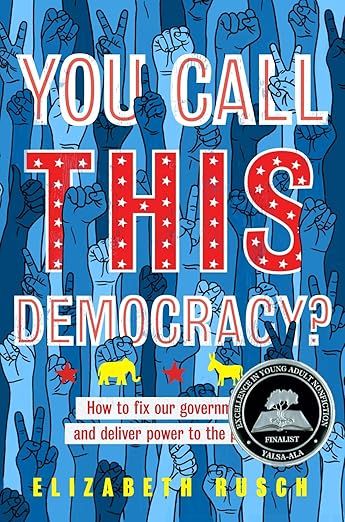

You Call This Democracy?: How to Fix Our Government and Deliver Power to the People: An Empowering Guide to American Politics for Teens by Elizabeth Rusch
Each of the chapters in this guide to democracy explores a single problem within the system. Along with clear explanations for the problems, including things like the electoral college, gerrymandering, voter suppression, and more, the book offers not only solutions that young people can work toward in fixing them but actual examples of other people who have taken the effort to try creating that change.
YA Book News
If you’re reading this “What’s Up in YA?” newsletter on bookriot.com or got it from a friend, consider getting it sent directly to your inbox. You can sign up here.
Thanks as always for hanging out, and we’ll see you again on Thursday.
Until then, happy reading!

